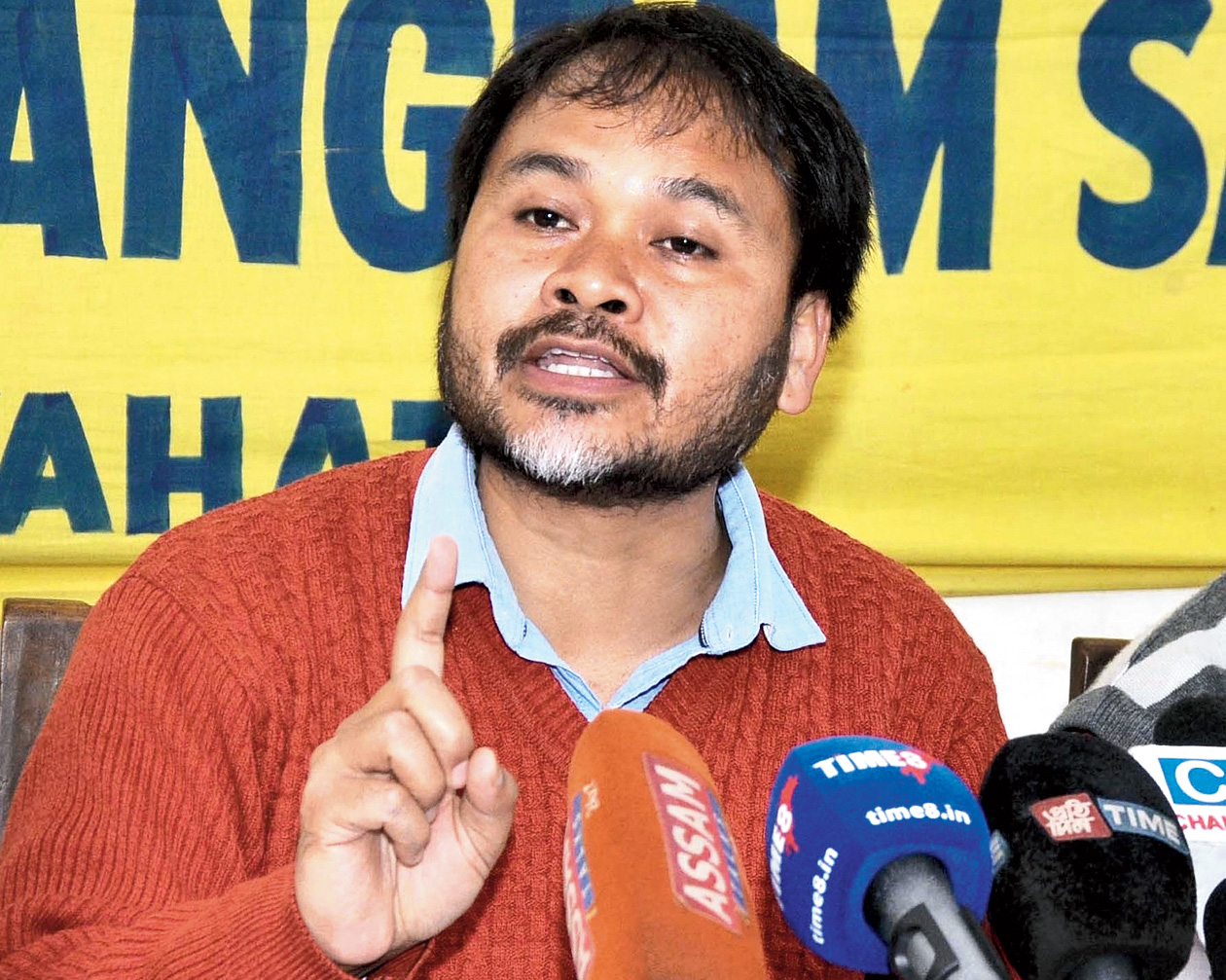Krishak Mukti Sangram Samiti (KMSS) adviser Akhil Gogoi on Saturday held “molasses syndicate”, active in Upper Assam’s Golaghat district, responsible for the hooch tragedy.
He alleged that a racket involving local legislators, senior police officials, the deputy commissioner’s office and godown owners are running a sulai (hooch) syndicate besides coal and betel nut ones in the district.
“Additional superintendent of police Dhrubajyoti Bora and deputy superintendent of police Partha Pratim Saikia are mainly running the syndicate and they get a part of profit from transporters and godown owners. With them, legislator Mrinal Saikia is involved. Instead of taking responsibility for the incident, he engaged in a blame game with the Congress,” alleged Akhil, who had brought the same charges against the officials a few months ago.
Saikia on Saturday said he sniffs a political motive in the Congress stand. He named two godowns, one in Ranganadi, owned by Lalchand Garewal and Subhash Sahu, and another in Merapani, owned by Anil Gupta and Pradeep Gupta, as being involved in the alleged syndicate.
The Merapani godown was sealed and the owners detained by district administrations following the incident.
“However, civil bodies had in April complained to the deputy commissioner against the godown owners, following which the then deputy commissioner had formed an inquiry committee that has not filed its report even after nine months. This proves that the deputy commissioner’s office is also involved,” he said.
Akhil criticised the excise department as a “tax collecting” department and demanded ban on all forms of alcohol except the traditionally brewed ones by the indigenous people.
“The excise revenue department during the final year of the Congress regime (2014-2015) was Rs 665.82 crore but in the financial year 2017-18 it doubled to Rs 117.64 crore and up to January this year, it is already Rs 1,039.97 crore. This has happened owing to the department’s relentless promotion of alcohol,” he said.
“Since traditionally brewed liquors are part of Assamese culture, those cannot be banned. But except those, all other liquor should be banned,” Akhil added.
The KMSS will start an awareness drive across the state on prevention of sale and consumption of alcohol in Assam.










